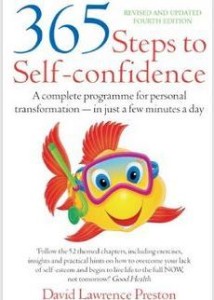Most people dislike confrontation, but if you have confidence in yourself and know how to diffuse aggression you need not be unduly worried by it. Try the following:
Empathic statements
Stay calm, listen attentively and show that you recognise how the other person feels by acknowledging their feelings. This often diffuses a situation when tempers are running high:
- I can see you’re angry/upset/hurt etc./disappointed that things haven’t worked out the way you wanted …..
- You seem upset. What’s the matter?
This keeps the lines of communication open without necessarily endorsing their point of view. And it doesn’t rule out the possibility of coming to some sort of agreement.
Rapport building/staying in rapport
On the other hand, staying calm can actually exacerbate the situation. Angry people faced with a very calm, composed and self-controlled individual may think you’re not taking them seriously enough and become even more infuriated.
Use listening and rapport-building techniques. Match and mirror their behaviour, raising your voice and stepping up your pace of speech, then slowly and deliberately mellow, carefully observing and encouraging them to follow suit.
Framing
Framing is a way of softening a response. For example:
- ‘You may be right. I prefer to see it his way, though…..’
The ‘Third Party’ technique
Another approach is to invent a third party to argue your case for you. This way, the altercation doesn’t become personal.
- Yes, I agree with that point, but how would you respond to someone who said….
- I have a friend who says….. What would you say to him/her?
Direct challenge
If someone is trying to manipulate you, challenge them directly.
- You’re not trying to make me feel… (guilty/stupid/selfish etc.) are you?
This can be an effective form of words. It usually makes the other person stop and reflect and gives you the upper hand.
Focus on only part of what was said
Another effective response to this kind of manipulation is to focus only on part of what was said. This can be very disarming. E.g.:
- Him: ‘If you loved me, you wouldn’t treat me like this.’
- Her: ‘How long have you been telling yourself I don’t really love you?’
Agree
Agreeing with a confrontational comment can take the wind out of their sails:
- ‘The house is a pig sty. You’re so untidy.’
- ‘Yes you’re right, it does need tidying.’
If you sense that they are trying to upset you, calmly admit there may be some truth in the accusation, but add a comment or question that shows you have made your own mind up about the situation:
- ‘The house is a pig sty. Doesn’t it bother you that you’re so untidy?’
- ‘Yes, I know it could be tidier, but that’s the way it’s going to have to stay until I’ve finished what I’m doing. Why don’t you make a start in the living room?’
This puts them on the spot and quickly reveals whether they are trying to be helpful or just having a go at you. Once you’ve brought their real reasons to light, you can easily deflect them.
- Yes I know, but I’ve had X Y and Z to cope with recently and it’s a struggle to keep up with everything. Have you any suggestions? What would you like to do to help?
At this point, if they’re genuinely concerned for you, they’ll follow up with a helpful comment. Most put-down specialists, however, duck the question or add another derisive comment, so you must be prepared to respond and be persistent.
Humour
Humour can dissipate anger, but be careful; it can have the opposite effect if they think you’re mocking them.
Remove yourself
One of the best strategies for dealing with difficult situations is to remove yourself long enough to calm down and compose yourself. Try, ‘Please excuse me for a moment. I have to go to the bathroom.’ While there, do some instant relaxation exercises, take a few deep breaths and mentally rehearse your next step.
©David Lawrence Preston, 24.6.2016
Follow me on Facebook and Twitter @David_L_Preston
How to Books, 2010

